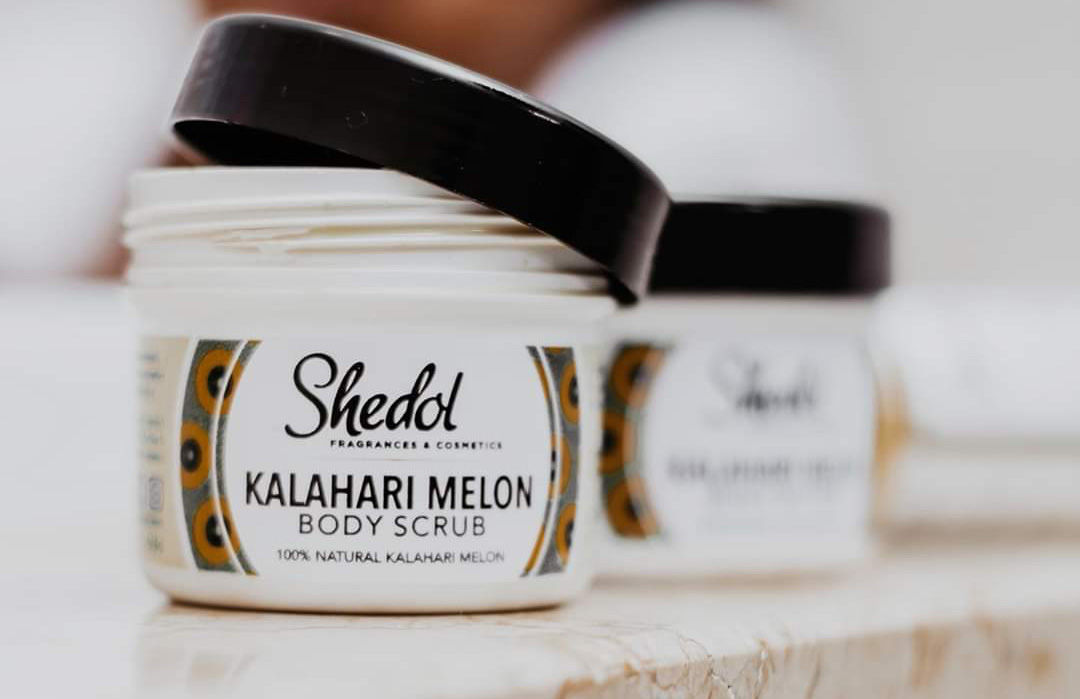Just last month the beauty and cosmetics brand scooped the Best Beauty Concept prize from WIA 54
GOSEGO MOTSUMI
The world of beauty has taken a huge interest in products that celebrate the essence of Africa’s unique natural resources and ingredients while at the same time harnessing traditional skills. Against this welcome backgound, the founder of Shedol Group, Kgomotso Twagirayezu, has sparked a revolution that is reverberating across Botswana by creating a range of perfumes and cosmetic products that have captured the imaginations of consumers.
The star ingredients of the homegrown products are extracts of morula, baobab, Kalahari melon seed oils which are all indigenous to Botswana. “We created our products with Botswana’s climate in mind,” said Twagirayezu in an interview. “People want products that are sufficiently moisturising in winter and not oily in summer. Cosmetics are usually made with women in mind but the truth is that everyone needs to use them. We did our research to close the gap. Morula oil is the secret to timeless hair and skin nourishment. People also complain of dry skin and blemishes, and baobab oil does magic for such issues.”
Shedol Group is already armed with a winning profile across the African continent but it started as a passion project known as Shedol Fragrances in 2015. Twagirayezu had a fragrance collection that inspired her to embark on research into the manufacturing process of fragrances. She found a wealth of information online before she invested in the raw materials necessary for her to embark on her own course. The results were impressive and she began to sell her perfumes to family and friends. In 2018, she took a risk by investing in a space at Game City Mall from which she eventually graduated into a kiosk on the same prime spot at the upmarket shopping mall.
“This was when I introduced our body range that is made from our indigenous products,” Twagirayezu explains. “These were exquisite ingredients that set us apart from our competitors. Now we have fragrances, body butters, scrubs, beard balms and oils that range between P30 and P200 apiece.”
The aims, she says, is to have everyone using their products by 2025. This cosmetics enterpreneur works with a qualified chemist who ensures that the products are safe. And no doubt they are because they are already EU and BoBS certified. The plan is to reduce Botswana’s humoungous import bill by claiming a good share of the local market before breaking into the export market.
“We have a meaningful value chain that creates employment all along because our community collects these indigenous products to feed our growing local demand,” says Twagirayezu. “We are currently listed with Square Mart and Trans Africa but the plan is to be listed in 50 local stores by December this year.”
The beauty industry consistently requires those in it to be on their toes if they are to keep up its revolving changes. One way that Twagirayezu does that is learning from Youtube and applying for opportunities to expand her knowledge. It pays because just last month Shedol Group was announced as the winners of the WIA 54 programme in the beauty industry catefory. The Women in Africa 54 is a pan-African programme that supports and promotes women entrepreneurship on the African continent.
“We were announced the winning business and now represent Botswana among other African winners from 53 different countries,” says the beautician. “The winning start-ups were supposed to go for the WIA Annual Summit in Marrakech, Morocco in June 2020 but we could not travel because of COVID-19 restrictions. We were afforded networking and training opportunities online that came in handy in the daily running of our business.”
African women were invited to submit their draft pan-African business plans to the initiative through the WIA website earlier this year. Upon receipt of the applications, 54 start-ups were pre-selected before each proposal was examined according to precise criteria such as the social impact rate of the technologies, products and services proposed, the scalability of the business model and their growth potential, female patronage or the teams’ ability to execute the plan.

